2021 & 2022 Galileo Circle Awards Event Program
Includes excerpts from the awardees' nomination letters.
GALILEO CIRCLE CURIE AWARDEE
Michael Marty, Assistant Professor, Chemistry & Biochemistry
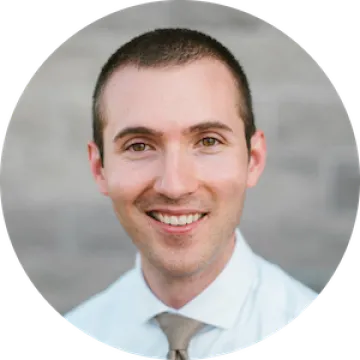
Dr. Michael Marty is an Assistant Professor in the Chemistry & Biochemistry Department and Bio5 Institute. Dr. Marty has been awarded the ASMS Research Award, the Bisgrove Scholar Award, an NSF CAREER award, and an NIH R35 Maximizing Investigators' Research Award (MIRA). His research applies lipoprotein nanodiscs with mass spectrometry to study membrane proteins, antimicrobial peptides, and their interactions with lipid bilayers. As the developer of UniDec, he is also interested in mass spectrometry data analysis and deconvolution.
GALILEO CIRCLE CURIE AWARDEE
Nicole Marrone, Associate Professor, Speech, Language & Hearing Sciences
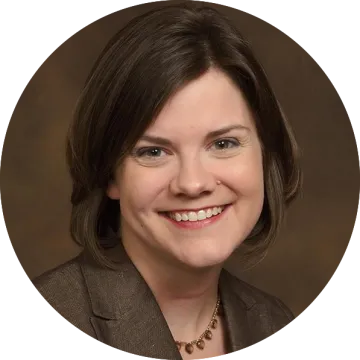
Dr. Nicole Marrone, CCC-A, is an Associate Professor in the Speech, Language & Hearing Sciences Department and holds the James S. and Dyan Pignatelli/Unisource Clinical Chair in Audiologic Rehabilitation for Adults at the University of Arizona. Her research investigates hearing loss and rehabilitation in adults. Her specialty is how interventions, including hearing aids and group audiologic rehabilitation, can improve an individual's quality of life and communication in everyday environments.
GALILEO CIRCLE CURIE AWARDEE
Laura Condon, Assistant Professor, Hydrology & Atmospheric Sciences

Dr. Laura Condon is an Assistant Professor in the Hydrology & Atmospheric Sciences Department. Dr. Condon researches water sustainability and the dynamics of hydrologic systems. Her work combines physically-based numerical modeling with statistical techniques and she is a lead developer of a national modeling framework. Prior to joining the University of Arizona from Syracuse University, she worked in environmental consulting and for the Bureau of Reclamation, primarily studying long term water availability issues in the Western US.
GALILEO CIRCLE COPERNICUS AWARDEE
Brooke Massani, Director of Research Support Services, Chemistry & Biochemistry
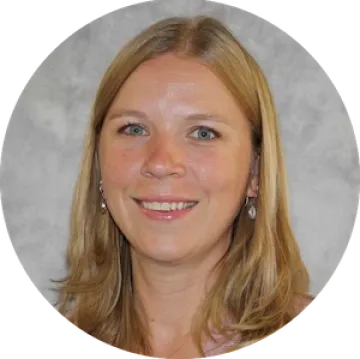
Dr. Brooke Massani is the Director of Research Support Services and the Staff Scientist Manager of the W.M. Keck Center for Nanoscale imaging in the Chemistry & Biochemistry Department. Dr. Massani has dedicated her career to supporting the research mission of the university through the management of multi-user scientific research facilities. She has overseen the addition of $1.8 million in scientific instrumentation and has trained over 2,200 researchers on instruments supporting research projects from chemistry, biology, physics, materials science, optics, and medicine. She enjoys working with University of Arizona researchers and seeing their progression from novice to expert users as they push the edges of scientific discovery.
GALILEO CIRCLE COPERNICUS AWARDEE
Peter Brewer, Curator of Collections, Laboratory of Tree-Ring Research
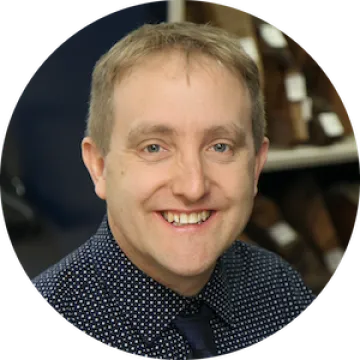
Peter Brewer is the Curator of Collections at the Laboratory of Tree-Ring Research where he has led efforts to provide access to specimens and data collected by University of Arizona researchers over the past 100 years. Through his interdisciplinary background in plant sciences, archaeology and informatics, he has led the development of data management tools, software platforms, and data standards that are now used by tree-ring researchers across the globe. He leads a large team that collaborates with the National Park Service's Western Archaeological and Conservation Center to provide diverse training opportunities for students and early career professionals, whilst elevating the curation program's mission and impact on campus and in the wider community.
GALILEO CIRCLE POSTDOC AWARDEE
Amanda Garcia, Postdoctoral Fellow, Molecular & Cellular Biology
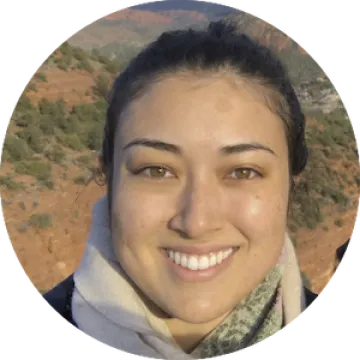
Dr. Amanda Garcia is a NASA Astrobiology Postdoctoral Fellow working with Dr. Betul Kaçar in the Molecular & Cellular Biology Department. Since receiving her Ph.D. in Geology from UCLA, she currently works to integrate the geologic record with novel experimental tools for reconstructing ancient biology. This approach can help constrain how early life evolved billions of years ago and how it might develop on other planets.

